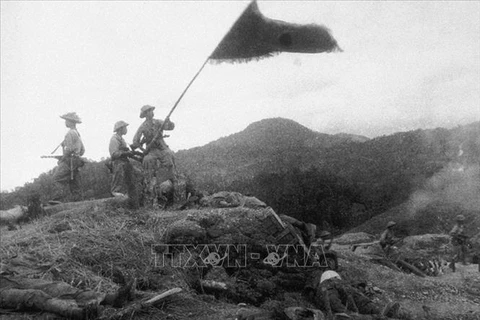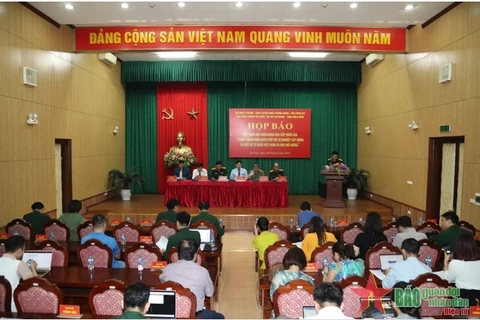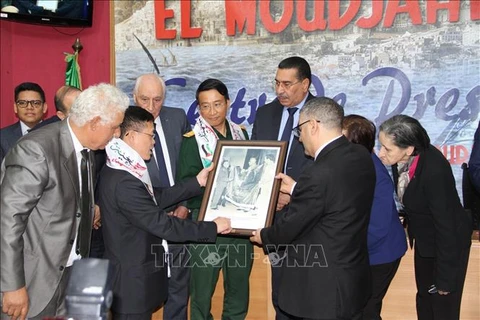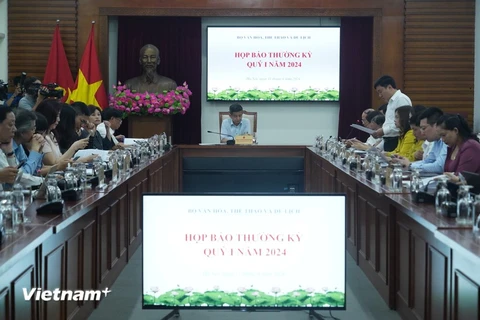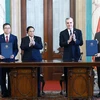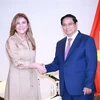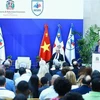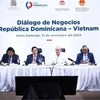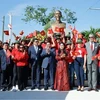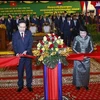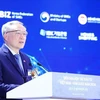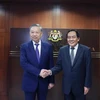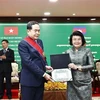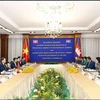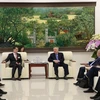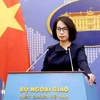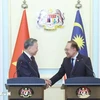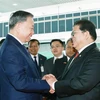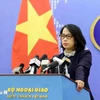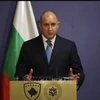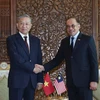Hanoi (VNA) – Minister of Foreign Affairs Bui Thanh Son has highlighted the significance of the Geneva Accords 70 years after its signing and valuable lessons for Vietnam's diplomatic endeavors.
In a recent interview granted to the press on the occasion, the official recalled that on July 21, 1954, the Geneva Accords were signed after 75 days of intense and complex negotiations marking the first time in the nation's history that the fundamental national rights of Vietnam – independence, sovereignty, unity, and territorial integrity – had been affirmed in an international agreement, recognised and respected by the countries participating in the Geneva Conference. This was a result of the resilient struggle by the people under the leadership of the Party throughout the long resistance against colonialism, culminating in the glorious victory of Dien Bien Phu.
He said alongside the victory, the accords completely ended the colonial domination of the old imperialism that had lasted nearly 100 years in the country, ushering in a new chapter in the cause of national liberation and reunification. It marked the establishment of socialism in the north and the launch of the democratic national revolution in the south, aiming to fully realise the goal of national independence and unity.
 Deputy Minister of National Defence Ta Quang Buu (sitting, right), of the delegation of the Democratic Republic of Vietnam, and French General Henri Delteil, Acting Commander-in-chief of the French Union forces in Indochina, sign the agreement on the cessation of hostilities in Vietnam. (File photo: VNA)
Deputy Minister of National Defence Ta Quang Buu (sitting, right), of the delegation of the Democratic Republic of Vietnam, and French General Henri Delteil, Acting Commander-in-chief of the French Union forces in Indochina, sign the agreement on the cessation of hostilities in Vietnam. (File photo: VNA) The signing of the Geneva Accords was not only a historical milestone for the nation but also held significance for the era, he said, adding that it represented the collective triumph of the three Indochinese countries and peace lovers worldwide. This agreement, along with the Dien Bien Phu victory, strongly encouraged oppressed peoples to rise up in the struggle for national liberation, heralding the era of the collapse of imperialism worldwide.
Describing the accords as the first international agreement negotiated, signed and enforced by Vietnam, Son said it not only affirmed Vietnam's independent and sovereign status on the international stage but also represented a significant milestone in the development of Vietnam's revolutionary diplomacy. It left valuable lessons and contributed to the cultivation of numerous outstanding diplomats in the Ho Chi Minh era.
According to him, Vietnam kept expanding international solidarity, pooling support from people worldwide to the righteous struggle by the Vietnamese people during the negotiations of the Geneva Accords.
Throughout the process of negotiating, signing, and implementing the accords, Vietnam consistently adhered to the principles of peace, national independence, and territorial integrity, while remaining agile and flexible with a strategy appropriate to the balance of power and the global and regional context, in order to achieve strategic objectives.
The foreign minister also underlined lessons on studying and forecasting situation, using dialogue and peaceful negotiations to resolve differences and conflicts in international relations, adding that they are especially relevant in today's complex global landscape.
He further said that in the overall cause of national liberation and reunification, and specifically in the negotiations, signing, and implementation of the Geneva Accords, Vietnam consistently received significant and invaluable support, both materially and spiritually, from international friends, primarily from Laos, Cambodia, socialist countries, and peace-loving people worldwide.
In the process of renewal and following the Party's sound foreign policy, Vietnam continues to garner invaluable support and cooperation from the international community on the basis of equality and mutually beneficial cooperation.
The Vietnamese Party, State, and people always highly value and keep in mind the support and assistance from international friends, he said, adding that within its ability, Vietnam always supports and makes active and responsible contributions to the collective efforts of the international community for peace, independence, democracy, and progress worldwide./.

